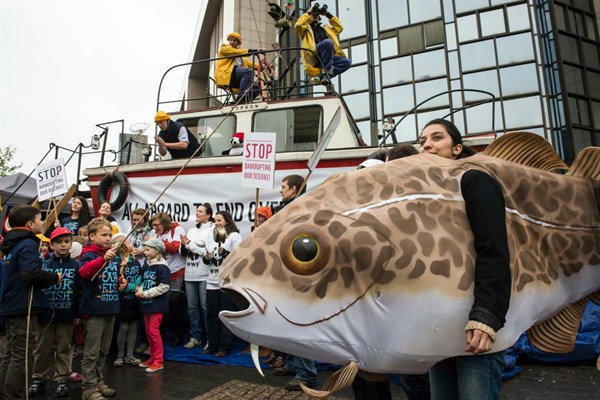Since 2001, member states of the World Trade Organization have held on-and-off negotiations on an agreement to end harmful subsidies to fisheries that are contributing to the depletion of fish stocks around the world. The United Nations Food and Agriculture Organization estimates that in 2015, only two-thirds of the world’s fish stocks were being harvested at sustainable levels, down from 90 percent in 1974. Although the WTO is close to an agreement, it won’t meet a year-end deadline proposed by the U.N. In an email interview with WPR, Daniel Skerritt, a postdoctoral research fellow with the Fisheries Economics Research Unit at the University of British Columbia’s Institute for the Oceans and Fisheries, discusses how fisheries subsidies contribute to overfishing and why talks at the WTO have gone on for nearly two decades.
World Politics Review: How much of an impact are fisheries subsidies having on the depletion of fish stocks around the world? What countries are the worst offenders?
Daniel Skerritt: The precise causes of overfishing are complex, with multiple pressures from climate change and marine pollution all contributing. But fundamentally, overfishing is the result of too many vessels catching too many fish. This is where the issue of fisheries subsidies comes in. Subsidies that artificially increase revenues or reduce costs allow fishers to make more profits than usual, which allows them to maintain levels of fishing above what is biologically and economically sustainable, which in turn motivates further investment in fishing capacity and incentivizes overfishing. Subsidies that lead to this perverse situation are considered “capacity-enhancing.” While it is difficult to discern the direct impact of capacity-enhancing subsidies on the depletion of fish stocks, it is clear that they provide the financial stimulus that makes overcapacity and overfishing more common.

